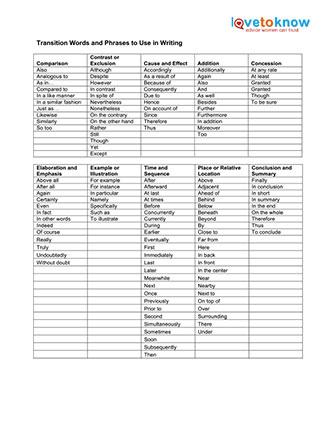
If you love computer hardware or software, working in information technology (IT) may be an ideal career path for you. From writing code to computer forensics or network security, there are many types of tech jobs to consider. Explore a selection of IT careers and salaries so you can make an informed decision about how to pursue your passion for technology in a professional capacity.
IT Jobs and Salaries for (Beginners and Beyond)
While it's a good idea to seek formal education in information technology if you want to work in this field, many IT jobs don't necessarily require a degree. Some employers may prefer or require formal education, but many are more concerned with skills. Once you gain experience as an early-career IT professional, you'll be able to advance from entry-level roles to more senior positions. Most IT jobs offer plenty of room for advancement, as evidenced by the list of popular IT jobs and salaries below.
| Job Type | Early-Career Pay Expectations | Senior-Level Pay Expectations |
| Computer Technician | $29,000 | $55,000 |
| IT Help Desk | $34,000 | $66,000 |
| Call Center Tech Support | $42,000 | $82,000 |
| Web Developer | $43,000 | $103,000 |
| System Administrator | $44,000 | $98,000 |
| Search Engine Optimization (SEO) Analyst | $45,000 | $87,000 |
| Quality Assurance (QA) Tester | $54,000 | $80,000 |
| Computer Programmer | $58,000 | $88,000 |
| Computer Forensics Analyst | $58,000 | $120,000 |
| Database Administrator (DBA) | $57,000 | $109,000 |
| Information Security Analyst | $66,000 | $113,000 |
Computer Technician
If you enjoy working with hardware, going to work as a computer technician is a great IT occupation. This type of work usually involves working in a retail location repairing computers, printers, tablets, or cell phones that customers bring in to have fixed. It may also involve going into businesses or the homes of customers to provide on-site repair. Either way, you'll need to be able to identify what is wrong with various types of technical equipment and be able to make the necessary repairs once you have customer approval to move forward. The average entry-level pay for computer technicians is around $29,000 per year. Experienced computer technicians earn an average of just over $55,000 annually.
IT Help Desk
IT help desk representatives provide tech support to employees and others who use the company's computer systems and software. For example, colleges and universities provide help desk support to students as well as employees. These jobs involve things like answering questions from end-users and setting up or upgrading equipment and applications. Beginners have the best chance of getting hired at a large organization that has several levels of help desk representative jobs, more so than with a small firm that only has one or two workers in this type of role. The average annual pay for early-career help desk jobs is around $34,000 per year. It's around $66,000 for senior tier help desk jobs.
Call Center Tech Support
Companies that build software and hardware typically back up their products with tech support professionals who help customers by phone or chat. These jobs are a great way to get started in the IT field. You'll need to be able to help end-users and other customer contacts troubleshoot and resolve IT issues via spoken or written communication. Some of these jobs require physically working at the company's location or at an outsourced call center that the company contracts with to provide tech support. Some are remote jobs that allow employees to work from home. For call center tech support jobs, the average annual starting pay is around $42,000. Senior tech support analysts earn an average of $82,000.
Web Developer

Web development companies, digital marketing firms, and e-commerce platforms typically have in-house web development teams. As a newbie web developer, you'll be assigned to work closely with more experienced members of the team. If you are particularly interested in things like usability and design, look for front-end web development roles. If you want to focus more on functionality, back-end development may be a better fit. Either way, be prepared to spend a lot of time testing and debugging code at first, before moving on to more complex tasks (and higher-level roles) as you gain experience. The average pay for entry-level web developers is around $43,000 per year. Senior web developers earn more than $100,000 per year.
System Administrator
If you want to work in computer networking, consider getting started as a junior system administrator. This can be a step up for entry-level computer technicians and help desk representatives, as well as an entry point for those with formal training or relevant IT certifications. Junior system administrators work closely with an experienced system administrator or an IT department head who oversees multiple junior-level employees. This type of job involves dealing with hardware deployment, software installation, networking, user permissions, documentation, and more. Pay for junior system administrators is around $44,000 per year. For senior system administrators, the average compensation is around $98,000.
Search Engine Optimization (SEO) Analyst
SEO analysts work in web marketing, but they don't actually build websites. Instead, they focus on making sure that the websites they work on perform well in search engine rankings. They do a lot of data analysis, reviewing statistics on site visitors and competitor rankings. They identify issues that could be keeping the site from ranking high, such as problems with page speed or design. They recommend improvements to help increase the site's position in search results. SEO analysts also perform keyword research and link building, while keeping up with search engine algorithm updates. The average pay for SEO analyst jobs is approximately $45,000 per year for entry-level roles. For senior roles, compensation is close to $86,000 per year.
Quality Assurance (QA) Tester
The average pay for a junior quality assurance tester is around $55,000 per year. Working as a junior-level QA tester with a software development company is a great way to get started in the software side of the tech sector. Software QA testers are responsible for identifying and documenting problems, such as bugs or logic errors, so that programmers can correct them. When a new application or version is developed, QA testers will use the tech as if they were end-users and keep track of what sequences result in errors. When end-users report errors, QA testers will seek to recreate them so the root cause can be found. The average pay for junior QA testers is around $54,000 per year. On average, senior QA testers earn around $80,000 annually.
Computer Programmer
If you're more interested in developing software applications than websites, working as a computer programmer is a good path to consider. These jobs are sometimes listed as developer or software engineer roles. Look closely at any job that uses the word "engineer" in the title, as it may be a position that requires a computer engineering degree. Entry-level programmers work as part of a team that includes more experienced individuals to write, update, and maintain software applications. These jobs involve writing code, as well as testing and debugging computer software. On average, computer programmers earn around $58,0000 per year for entry-level jobs and about $88,000 for senior-level roles.
Computer Forensics Analyst
If you want to pair your love for computers with an interest in putting a stop to cybercrime, consider working as a computer forensics analyst. In this kind of tech job, you will analyze computers and digital recordings to look for evidence of fraud or other criminal activities. You may also be involved in operations to prevent or thwart attempted cybercrime. Most computer forensics analysts are employed in law enforcement agencies, but some work for corporations or private security firms. On average, computer forensics analysts earn around $58,000 per year in entry-level jobs, with senior-level employees making around $120,000 per year.
Database Administrator (DBA)
Database administrators are responsible for ensuring that business intelligence and other critical data are properly organized and stored so that the information is secure and can be easily accessed by those who need it. Most DBA jobs require an IT degree, even at the entry-level, or significant related work experience. In order to be considered for this type of job, you'll need to have skills specific to the type of database the organization uses (such as Oracle or SQL). The average compensation for DBAs is around $57,000 per year at the entry-level. Senior-level DBAs earn an average of $109,000 per year.
Information/Cyber Security Analyst

Working as an information security analyst (also referred to as a cyber security analyst) is an important job that involves helping companies protect their IT systems against data breaches and other computer security threats that could compromise the integrity or privacy of critical business data. They work diligently to keep the companies they work with from being victimized by hackers, including performing testing to identify vulnerabilities so they can be corrected. They also monitor to ensure that employees are not violating security protocols that could put the company at risk. Entry-level information security analysts earn about $66,000 per year. Senior information security analysts make around $113,000.
High-Level IT Leadership Roles
Once you have established yourself as a skilled IT professional and have transitioned from an entry-level to a senior-level role, there are still opportunities to continue advancing. After all, businesses that employ IT workers need skilled professionals who can lead those employees. These jobs require many years of successful experience in the field, along with relevant certifications, education, and leadership skills. The higher the job level, the more likely it is that a degree will be required.
| Leadership Role | Salary Expectations |
| IT Manager | $128,000 |
| IT Director | $187,000 |
| Chief Technology Officer (CTO) | $254,000 |
| Chief Information Officer (CIO) | $291,000 |
- IT Manager: IT managers oversee other technology employees who work in a particular department or on a specific team and encourage them to meet standards of excellence. They handle budgeting, scheduling, setting deadlines, and managing performance. The average pay for IT managers is about $128,000 per year.
- IT Director: An IT director oversees the IT managers who are individually tasked with supervising the organization's various tech teams and/or functions. This person may report to a higher-level IT leader or the company's chief executive officer (CEO) or chief operating officer (COO). The average compensation for IT directors is around $187,000 per year.
- Chief Technology Officer (CTO): Some organizations have a CTO on their executive team. A CTO does not manage people. This is a high-level leadership role that focuses on the organization's technology strategy rather than on personnel matters. The average compensation for a CTO is around $254,000 per year.
- Chief Information Officer (CIO): A company's CIO oversees all information technology personnel for the organization and is a member of the executive team. In companies that don't have a CTO, the CIO also oversees the technology strategy. The average compensation for a CIO is around $291,000 per year.
Many Options for IT Careers
Opportunities in the information technology field continue to change and evolve as new technological advances are introduced to the market. The jobs listed above are great ones to explore, though you may discover that there are even more ways to get started in the IT field when you start looking around at specific job openings. Whether your interests lie with hardware, software, or any other aspects of technology, there are definitely lucrative opportunities out there for those who have the in-demand skills that employers need and the work ethic that it takes to succeed.







